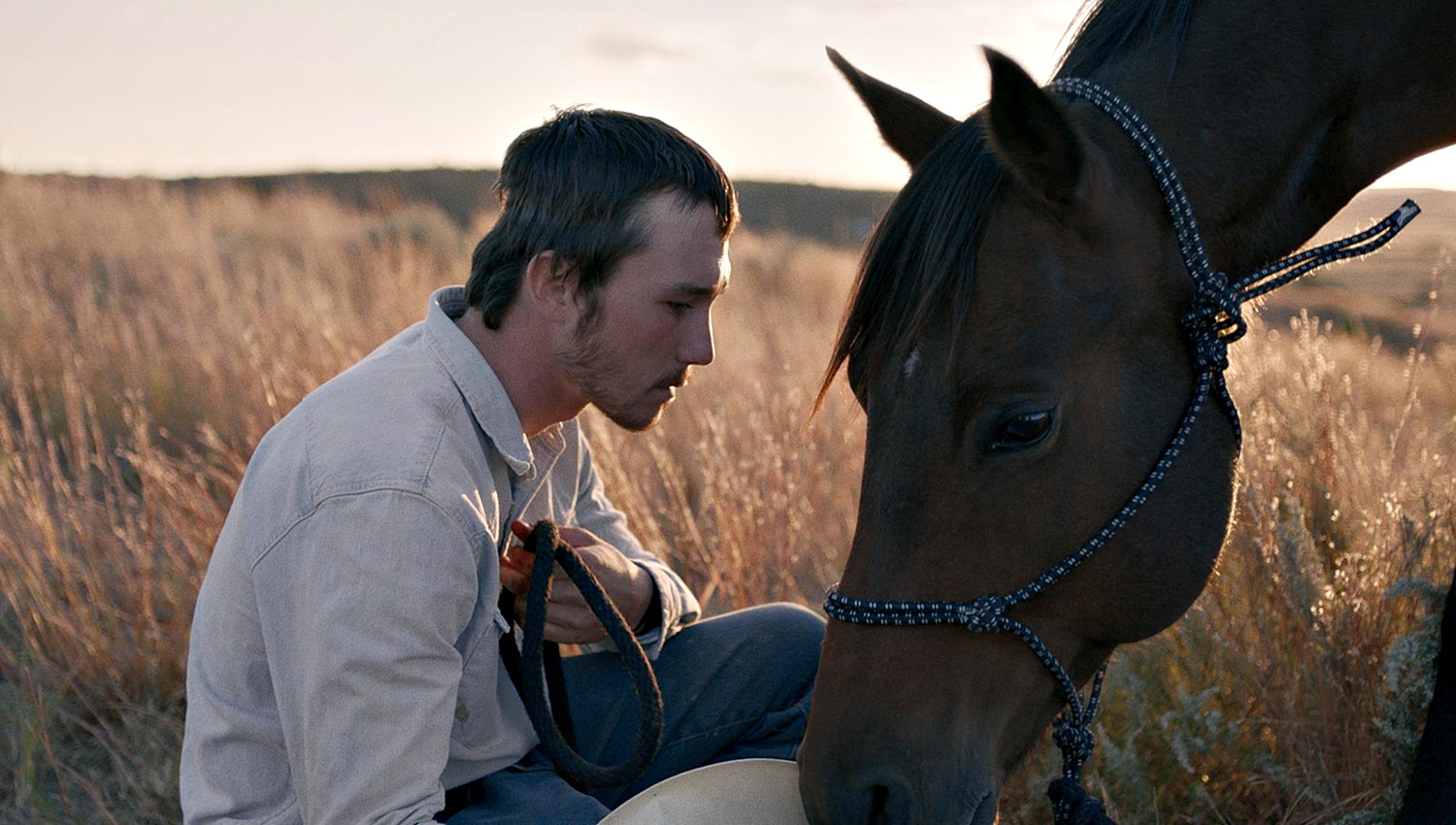Chloé Zhao’s sobering drama The Rider is a mixed bag of filmmaking elements and emotions. The Chinese filmmaker discovered cowboy Brady Jandreau while doing research on a previous film. Her next project would revolve entirely around Jandreau’s life and desperate situation, even casting the South Dakota rider and his family as themselves. Zhao’s The Rider is similar in many ways to Kelly Reichardt’s Certain Women. Both filmmakers exploring the miserable and desperate lives of those living in north country flyover states. The acting in The Rider falls somewhere between amateur and realism, which depending on the scene is either moving or cringe worthy. However, what Zhao is saying and presenting, her cinematic observations are more than compelling.
We meet Brady Blackburn (Jandreau) as he pulls the stitching out of the bloody bandage covering the ride side of his skull that was just operated on. Brady preforms in local rodeos for a living, like many of the uneducated young men in the area who assume the same path of their forefathers. Now laid up in recovery, warned to never set boot on another animal, Brady is faced with accepting fate or challenging it. On one hand he could become just like his alcoholic father (Tim Jandreau) who barely makes enough money to support Brady and his mentally disabled sister (Lilly Jandreau) in their house trailer. Or worse, Brady could defy doctors orders, continue riding, ending up like his best friend Lane Scott, completely paralyzed and immobile, living out his days in assisted living.
Zhao’s quest for authenticity and reality works both for and against the film.
There is a quality about Jandreau that could produce an actor with the right training. His looks are a mashup between younger versions of Joshua Hartnett and Tim McGraw. Yet there is no denying The Rider would be a much stronger film with real actors. Zhao is attempting to straddle the fence between documentary and narrative feature film. She almost pulls it off to with the help of God’s Own Country cinematographer Joshua James Richards, who already knows a thing or two about shooting in this type of terrain. Equally effective is composer Nathan Halpern’s original score, combined with the images, often disguise the inadequate acting scenes.
A film about consequences, The Rider wallows in misery for nearly two hours. It’s a sobering story of the modern cowboy and young men searching for their place in the world. What I found most difficult is the lack of common sense all the character fail to grasp, but perhaps that’s an unfair expectation from outside looking in. The Rider adds to the multitude of recent films (Walking Out, Wind River, Lean on Pete) that (unfairly) portray the northern central states as the most unwelcoming spots in the country. Not since Robert Redford’s adaptation of The Horse Whisperer can I recall a film that portrays Montana (and surrounding states) as somewhere positive and beautiful. Zhao’s quest for authenticity and reality works both for and against the film, the novelty in her approach is a near death warrant for mainstream audiences.
Final Thought
An assortment of amateur and expert filmmaking qualities, condition The Rider as both fascinating and burdensome.

